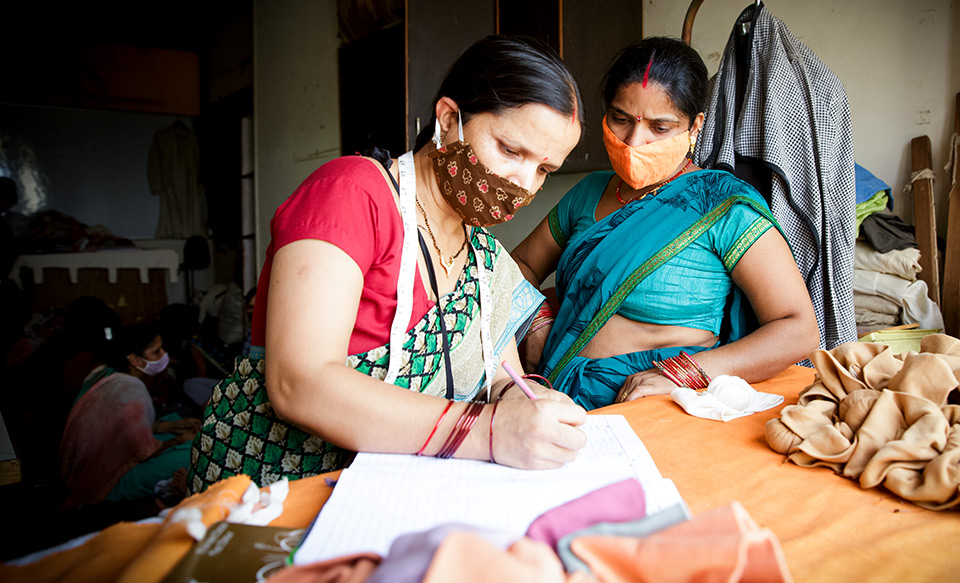“Human Rights are Women’s Rights, and Women’s Rights are Human Rights” – Hillary Rodham Clinton, Former United States Secretary of State With the changing times, the gig economy has been on a tremendous rise. The gig economy has been identified as workers who work on a short-term, contractual basis and are remotely controlled by labour procedures. The gig economy is on the rise due to the very fact that it would enable women to have a balanced lifestyle – weighing and assessing domestic responsibilities while earning income at the same time. Although significantly beneficial, the economy comes with its hazardous drawbacks – resulting in a sense of isolation and inflicting its workers with fewer opportunities, autonomous decision-making powers and bargaining power.
To begin with, the workers in the economy are not even identified as ‘workers’ – primarily because they are registered as self-employed professionals with aggregator companies, and therefore are not covered under the standard employee contracts. This, therefore, leads to various fundamental unfair aspects that the workers face.
Irregular Wages: Payments in this sector are determined by the ‘gigs’ they perform and are affected by demand fluctuations. Payments are task-based and not time-based, the workers are often exploited, earning less than the minimum wage. In emerging economies, where the wage costs are low, the workers will be willing to work for less than the minimum wage – and their pay is still restricted by work availability. They often work multiple gigs for minimum wage.
Absence of Labour Laws: Since the gig workers aren’t officially employees, they don’t have basic rights that are accessible to the formal workers. They don’t have access to any protections offered to the formal workers – leaving them massively excluded from basic essential rights in society.
Gig workers are deprived of their fundamental labour rights, economic security, and their right to unionise and collectively bargain for wages.
Unfair Working Conditions: The lack of basic human rights for the gig workers led to extreme exploitative and unfair working conditions. Extra hours, low pay, no benefits and lack of social protection are the key aspects towards unfair work treatment.
For instance, in areas where both women and men occupy the same vertical (such as ridesharing) – it has been observed that approximately males earn 7 per cent more than women due to restricting factors such as location and other accumulative strategies such as user ratings. Although significantly beneficial, the gig economy does not essentially decrease the economic penalties of care work on women and offer them equal opportunities and pay.
Well, are there any international policies safeguarding workers in the gig economy?
The International Labour Organisation’s Declaration on Fundamental Principles and Rights of Work suggests that workers be given appropriate social protection. ILO Declaration on Fundamental Principles and Rights of Work also states that the workers will have the right to form associations through which benefits can be appealed and grievances can be redressed. However, the regulatory framework fails to capture the holistic platform work in India. The Union Labour Ministry of India recently introduced the Labour Codes on Wages Act which intends to include as many as 44 central labour laws. Out of the four Labour Codes, just one Code on Social Security mentions gig workers. This Act neglects gig workers and essentially leaves them out of the minimum wage legislation, equal pay for equal work, Employees’ Provident Fund and Employment State Insurance Schemes.
The International Labour Organisation’s Decent Work Agenda has established the concept of social upgrading – employment standards and rights at work, social protection and dialogue. The Agenda enables and encourages work performed under conditions of freedom, equality, security and human dignity in which rights are safeguarded and approach pay is offered. There is a clear need for the establishment of women-centric policies that protect them as workers, and citizens and enable them to live as legal beings.
Well, what should be done: Some recommendations
A. Policymakers, the Private sector, Researchers, Scholars, Government and other key stakeholders must come together to establish clear laws that safeguard the rights of the gig workers.
B. Need for more women to be at the forefront while making policies and decisions for women workers in the gig economy.
C. Establish inclusive policies that protect the workers – ensuring fair working conditions and justly including them in the gig economy.
Image – UN Women

